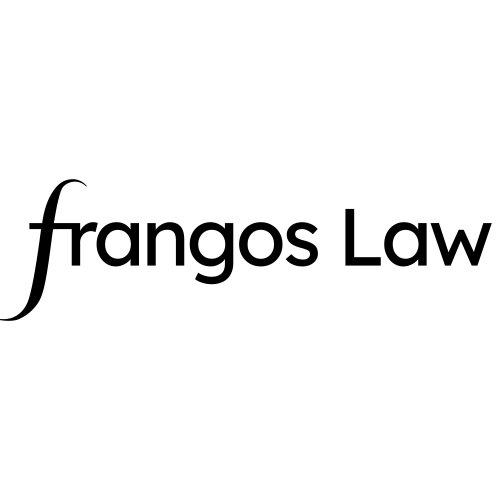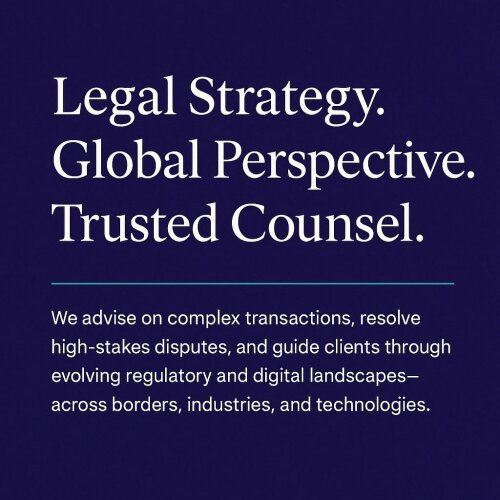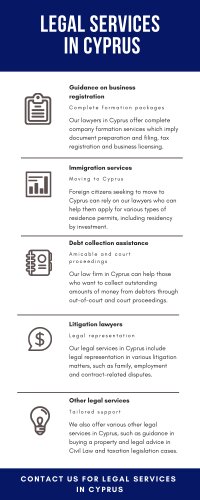Best Permanent Residency Lawyers in Larnaca
Share your needs with us, get contacted by law firms.
Free. Takes 2 min.
List of the best lawyers in Larnaca, Cyprus
Cyprus Permanent Residency Legal Articles
Browse our 1 legal article about Permanent Residency in Cyprus written by expert lawyers.
- Why Securing Permanent Residency in Cyprus Might Be the Best Option for You and Your Family
- For many non-EU nationals, relocating to a country that offers safety, stability, and quality of life is a top priority. Cyprus has become one of the most attractive destinations for individuals and families seeking to build a secure future.Thousands of third-country nationals have already chosen Cyprus thanks to its high... Read more →
About Permanent Residency Law in Larnaca, Cyprus
Larnaca, a breathtaking coastal city in Cyprus, offers significant advantages for individuals seeking to obtain permanent residency. Cyprus, as a member of the European Union, provides various pathways for non-EU nationals to obtain Permanent Residency (PR). The PR programs are designed to encourage foreign investment and attract skilled workers, thereby boosting the local economy. Understanding the legal framework governing permanent residency is crucial for ensuring a smooth application process and compliance with Cyprus's immigration laws.
Why You May Need a Lawyer
Applying for Permanent Residency in Larnaca can be a complex and nuanced process. Here are some common situations where legal expertise may be beneficial:
- Understanding eligibility criteria and selecting the right type of PR program.
- Assistance with preparing and submitting the required documentation.
- Handling legal complexities in cases of rejected applications or appeals.
- Guidance on property investment and other financial requirements.
- Interpretation of local laws and immigration regulations.
Legal professionals specializing in immigration law can help mitigate risks, ensure compliance, and streamline the entire process, making it far less daunting for applicants.
Local Laws Overview
Several key aspects of local laws are relevant to Permanent Residency in Larnaca:
- Cyprus Immigration Law: The key legislation governing immigration in Cyprus; outlines various categories for residency permits.
- Investment Requirements: Non-EU nationals often need to meet specific financial criteria, including real estate investments, to qualify for PR.
- Category F Visa: This type of visa is for applicants with a secured annual income, often from overseas, who do not intend to work in Cyprus but wish to reside there permanently.
- Fast Track Permanent Residency: A more expedited process available to applicants who invest in real estate or other approved projects; usually processed within two months.
- Annual Reviews and Compliance: PR holders must comply with ongoing requirements, such as maintaining qualifying investments and property ownership.
Frequently Asked Questions
What are the main types of permanent residency permits in Cyprus?
There are mainly two types: Category F Visa for non-working immigrants with an independent income, and the Fast Track Permanent Residency for those who invest in real estate or other significant projects.
What are the investment requirements for Fast Track Permanent Residency?
Applicants must invest at least €300,000 in real estate (plus VAT), among other financial criteria, including maintaining a secure annual income and a stable deposit in a local bank.
How long does it take to process a permanent residency application?
The Fast Track Permanent Residency can be processed within two months, whereas other applications may take several months or more.
Can family members be included in the PR application?
Yes, spouses, minor children, and financially dependent adult children up to a certain age can be included in the application.
Is it necessary to reside in Cyprus to maintain permanent residency?
Yes, the applicant must visit Cyprus at least once every two years to maintain the residency permit.
What documents are required for the permanent residency application?
Key documents include a valid passport, a clear criminal record, proof of investment and income, a medical insurance policy, and property ownership documentation, among others.
Can permanent residency be converted into citizenship?
Yes, permanent residency can potentially lead to citizenship. Cyprus offers a pathway to citizenship after 7 years of legal residency, subject to meeting additional criteria.
What happens if my PR application is rejected?
In case of rejection, applicants can appeal the decision or re-apply, addressing the reasons for the initial rejection. Legal assistance can be crucial in such cases.
Do I need to learn the Greek language to obtain PR?
No, there is no language requirement for obtaining permanent residency in Cyprus.
How can a lawyer assist with the PR renewal process?
Lawyers can help ensure that documentation is up-to-date, compliance requirements are met, and any changes in local laws are addressed during the renewal process.
Additional Resources
Here are some helpful resources and organizations related to Permanent Residency in Larnaca, Cyprus:
- Cyprus Civil Registry and Migration Department
- Cyprus Bar Association - for finding qualified immigration lawyers
- Local real estate agencies - for property investment guidelines
- Ministry of Interior of the Republic of Cyprus - for official immigration policies and updates
- Local embassies and consulates - for initial inquiries and consular assistance
Next Steps
If you need legal assistance with Permanent Residency in Larnaca, Cyprus, consider the following steps:
- Consult with a Qualified Lawyer: Look for a lawyer specializing in immigration law in Cyprus to guide you through the process.
- Gather Necessary Documentation: Ensure you have all required documents ready based on the type of PR you are applying for.
- Submit Your Application: Work with your lawyer to submit a complete and accurate application to the relevant Cyprus authorities.
- Follow Up: Regularly check the status of your application and address any additional requirements promptly.
Engaging an experienced legal professional can significantly enhance your chances of a successful outcome and provide peace of mind throughout the application process.
Lawzana helps you find the best lawyers and law firms in Larnaca through a curated and pre-screened list of qualified legal professionals. Our platform offers rankings and detailed profiles of attorneys and law firms, allowing you to compare based on practice areas, including Permanent Residency, experience, and client feedback.
Each profile includes a description of the firm's areas of practice, client reviews, team members and partners, year of establishment, spoken languages, office locations, contact information, social media presence, and any published articles or resources. Most firms on our platform speak English and are experienced in both local and international legal matters.
Get a quote from top-rated law firms in Larnaca, Cyprus — quickly, securely, and without unnecessary hassle.
Disclaimer:
The information provided on this page is for general informational purposes only and does not constitute legal advice. While we strive to ensure the accuracy and relevance of the content, legal information may change over time, and interpretations of the law can vary. You should always consult with a qualified legal professional for advice specific to your situation.
We disclaim all liability for actions taken or not taken based on the content of this page. If you believe any information is incorrect or outdated, please contact us, and we will review and update it where appropriate.
















